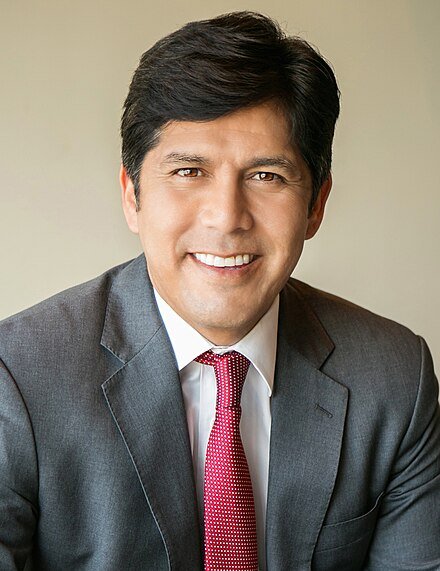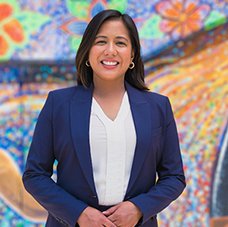CD14 City Council Race: November Election CandidatesYsabel Jurado and Kevin de León Answer Questions
Political News
In January, SPNA (South Park Neighborhood Association) asked each of the eight CD 14 March primary candidates questions related to South Park, downtown LA, and CD14. Their answers were in the January newsletter. We are re-posting answers from the 2 candidates who will face-off in the November 5 election – Ysabel Jurado and Kevin de León.
Their Answers to Our Questions about South Park
Question #1 - The South Park neighborhood is the densest residential neighborhood in downtown and still growing with new high-rises under construction. While the neighborhood is a good place for families, it lacks public school options thereby forcing families with school-age children to move away. What can the office of CD14 do to add public schools in South Park/downtown?
Ysabel Jurado - “The lack of public school options in South Park is a pressing concern. As a mom, I know just how important it is for our children to get a world class education, regardless of their zipcode. For decades, we’ve gutted funding for our public schools, and that’s got to stop. That’s why I’m advocating for increased funding and collaboration with educational stakeholders.”
Kevin de León - “We will be working with developers seeking to build in DTLA to set aside space as community benefit, in collaboration with LAUSD, and dedicate it to bringing schools downtown. We should reimagine what schools in dense urban areas should look like - New York style use of space where schools are multi-story floors in buildings with shared open space.”
Question #2 South Park needs more public spaces, parks, dog parks, playgrounds, and open space. A SuperPark is one idea – closing off a street to traffic thereby allowing a public space for people. What are your thoughts on the idea?
Kevin - “In June of this year I passed a motion creating a pilot program called Park Blocks (CF-22-0914), which is an idea borrowed from Barcelona which has successfully repurposed streets to create open spaces for families which they call Super Blocks. Working with stakeholders and South Park residents, we can identify streets that could be potential candidates for this pilot program.”
Ysabel - “The concept of a SuperPark aligns with our vision for inclusive urban planning. We need vibrant, accessible, public green spaces where families, pets, and residents can thrive, and where we can even implement climate protecting initiatives such as community gardens and tree canopy. These types of third spaces create a sense of safety and togetherness that every single neighborhood in our district deserves.”
Question #3 Personal and property safety is considered a basic need. What would you do in the South Park neighborhood that would make for a safer environment for residents and their property?
Ysabel - “Prioritizing personal and property safety is paramount. But let’s be clear: the safest cities in America invest in community, not incarceration. That’s why I will support community-building initiatives for youth and adults alike, including libraries, recreation centers, and youth programs, including after-school activities, mentoring, and job training, to deter involvement in crime and lead to better prospects for our young people.”
Kevin - “Street lights and footbeats are key. I have successfully negotiated an earmark of 3.5 million in overtime dollars dedicated to DTLA, the only community in LA to receive this, which has allowed LAPD to deploy footbeats year round. Additionally, addressing insidious copper wire thefts will allow us to keep the lights on to make our streets brighter and safer.”
Question #4 The Oceanwide property needs to be resolved. We need action. What is your solution to this property?
Kevin - “I have met with stakeholders in South Park, Oceanwide management and potential buyers to express deep concerns from the community and urge a speedy resolution to their tax liens and expedite a sale to another entity that could finish the development quickly. Our community should finally see this land developed instead of the eyesore that has sat there for years.”
Ysabel - “Given the housing crisis, the solution could be repurposing the unfinished project to cater more to affordable housing needs, like converting the upscale condos into affordable housing. I believe in a model of co-governance, so we also must engage the local community and housing advocacy groups to gather input on what their needs are, and what they would like to see.”
Their Answers to Downtown LA Question
Question #1 Downtown LA is the area most affected by the unhoused population in part because of the Skid Row neighborhood. Coping and navigating homeless encampments along with people with drug and mental health challenges is the #1 concern/complaint we hear about living in downtown. How would you address the needs of the homeless while addressing the needs of residents?
Ysabel Jurado - Homelessness is a humanitarian crisis in Los Angeles, most acutely felt in DTLA. Our approach involves a housing-first model, allocating resources to build affordable and supportive housing units while simultaneously investing in mental health services and collaborative efforts with service providers to ensure real support for individuals experiencing homelessness. We also intend on investing in Community Resource Hubs (CRH).
Kevin de León - “Skid Row is a continuation of failed policies that took place decades ago. In order to confront this crisis, we need a coordinated effort from the City, County and State. Our district under my leadership has built the most housing and while that has worked in other parts of CD14, Skid Row needs deeper coordination to be successful.”
Their Answers to CD14 Questions
Question #1 CD14 is a diverse district with each neighborhood having specific needs, issues, and concerns. How would you ensure equity and be an advocate for all who live in the district?
Kevin - “Council District 14 is composed of diverse neighborhoods with unique and specific needs. My staff responds to each community which is why I have 5 offices – one in each individual neighborhood with another coming to DTLA soon. The breadth of my work since taking office has demonstrated results for each community. For highlights, please visit our city website: www.councildistrict14.lacity.gov”
Ysabel - To ensure every voice is heard and every concern addressed, I'm committed to a grassroots approach. I'll establish regular town hall meetings, community forums, and visit neighborhood council meetings diligently. These platforms will serve as spaces for open dialogue, where residents can directly engage with decision-making processes. It's essential to empower communities to shape the policies that affect them.
Question #2 How would you build trust and transparency with the people living in CD14?
Ysabel - “I'll institute regular town halls, open forums, online platforms to engage constituents, and commit to regular updates on legislative actions, budget allocations, and inviting community feedback in order to foster trust and ensure ongoing dialogue and transparency. It is a top priority of mine that every single resident has a seat at the table and has their voice heard, honored, and uplifted.”
Kevin - “I am building trust with our community members by engaging with them directly. I listen to their needs and my staff and I respond accordingly. The resources I have brought to each community are proof that I listen and deliver real results, not just empty rhetoric which is ultimately what people care about - results!”
Question #3 What does “representing the people” mean to you?
Kevin - “Representing the people means advocating for my constituents, and fighting for the issues that affect them most. Being a champion on renters’ rights, improving public safety and getting the unhoused off the streets. I try to represent all my constituents effectively at city hall, especially those who don’t have a voice in the political arena.”
Ysabel - “To me, representing the people means being a conduit for their voices in decision-making processes. It's about actively listening, understanding diverse perspectives, and advocating for policies that benefit the entire community, especially those historically marginalized or underrepresented. I'm here to amplify the collective voice of CD14 and be a tireless advocate for its residents' well-being and progress.”
Compiled by Debra Shrout
a



